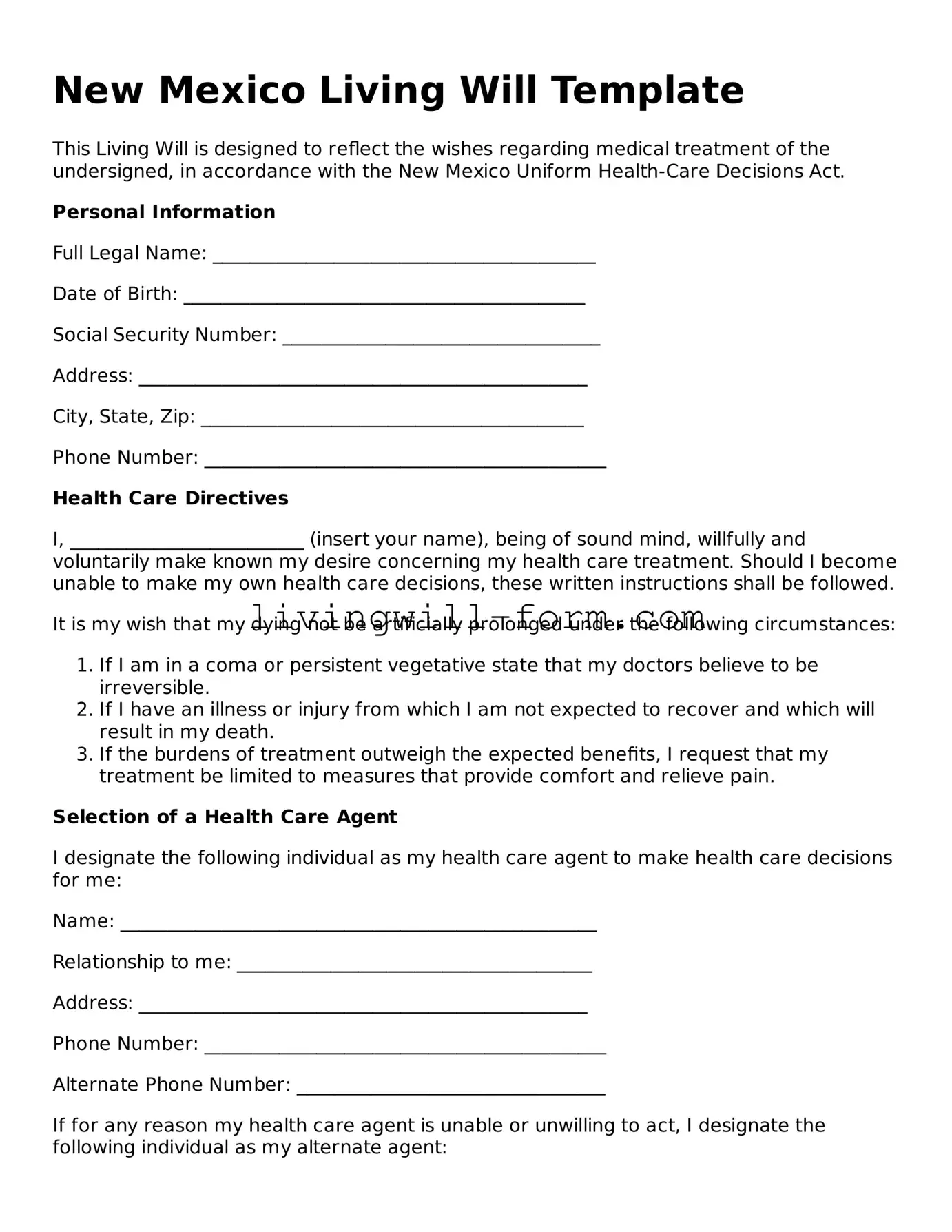New Mexico Living Will Template
This Living Will is designed to reflect the wishes regarding medical treatment of the undersigned, in accordance with the New Mexico Uniform Health-Care Decisions Act.
Personal Information
Full Legal Name: _________________________________________
Date of Birth: ___________________________________________
Social Security Number: __________________________________
Address: ________________________________________________
City, State, Zip: _________________________________________
Phone Number: ___________________________________________
Health Care Directives
I, _________________________ (insert your name), being of sound mind, willfully and voluntarily make known my desire concerning my health care treatment. Should I become unable to make my own health care decisions, these written instructions shall be followed.
It is my wish that my dying not be artificially prolonged under the following circumstances:
- If I am in a coma or persistent vegetative state that my doctors believe to be irreversible.
- If I have an illness or injury from which I am not expected to recover and which will result in my death.
- If the burdens of treatment outweigh the expected benefits, I request that my treatment be limited to measures that provide comfort and relieve pain.
Selection of a Health Care Agent
I designate the following individual as my health care agent to make health care decisions for me:
Name: ___________________________________________________
Relationship to me: ______________________________________
Address: ________________________________________________
Phone Number: ___________________________________________
Alternate Phone Number: _________________________________
If for any reason my health care agent is unable or unwilling to act, I designate the following individual as my alternate agent:
Name: ___________________________________________________
Relationship to me: ______________________________________
Address: ________________________________________________
Phone Number: ___________________________________________
Alternate Phone Number: _________________________________
Signatures
This document is executed this ____ day of ______________ (month), __________ (year).
_________________________________________________________
(Signature of Declarant)
This document was signed in the presence of two witnesses, who are neither health care providers involved in my direct care, nor employees of a health care facility where I am receiving care, nor related to me by blood or marriage.
Witness 1: _______________________ Date: ________________
Witness 2: _______________________ Date: ________________
Notarization (if required)
This document was acknowledged before me on this ____ day of ____________ (month), __________ (year), by __________________ (name of declarant).
_________________________________________________________
(Signature of Notary Public)
My commission expires: __________________________________

